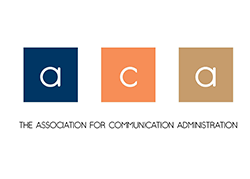Abstract
This article provides information on a study on the perceptions of quality in journalism and communications education. In many academic disciplines, including communications, accreditation has been the ruling paradigm of quality assurance for many years. Accreditation standards often have been used to measure many characteristics of institutions, but such standards may not be capable of identifying and measuring the true quality of institutional excellence. The study gathered information from a selected group of participants about those characteristics students, faculty and practitioners consider to be necessary components of high quality programs. The study also examined whether the accreditation standards used for journalism and communications programs reflect the characteristics the constituent groups perceive as representing quality. The study, which was conducted in 1994, used the Delphi research methodology. The Delphi method is characterized by anonymous responses from a panel of experts, multiple interactions, and convergence of responses. Participants for this study included individuals who were affiliated with journalism and communications programs accredited by the Accrediting Council for Education in Journalism and Mass Communications (ACEJMC), and media practitioners who were members of professional organizations that had an association with the ACEJMC.
Recommended Citation
Smith, M. A. (1997). Perceptions of quality in journalism and communications education: A delphi study. Journal of the Association for Communication Administration, 26(1), 32–50.


